Real Estate is a Basic Need
The Psychology of Real Estate
Maslow’s Hierarchy of Needs is a five-level model of human needs. These tiers are divided into three sections; the first being basic needs, the second psychological needs, and the last being self-fulfillment needs. The idea is that basic needs need to be satisfied before moving onto the next tiers. These basic needs include food, water, sleep, and shelter.
Today we’re going to focus on the basic human need of shelter. As an investor of real estate, you are investing in a basic need of every individual, housing.
When discussing investing in condos, one of the first questions asked are “How do I know I will get a tenant?” and “Why would someone want to live in them?” These are fair questions to ask. For example; China built the city of Ordos which was meant to house over 1 million people. Ordos was abandoned mid-construction with only 2% of its properties ever being filled and is now famously known as China’s Ghost Town. You can imagine there being many, many doubts at the idea of investing there. In this case, Toronto is a population growth area with a natural scarcity to housing and to land as well, as there is no more land being created. So, there’s a very strong need for these units as people continue to move into the city.
Stock Market vs. Real Estate Market
In my first-year business class at Wilfrid Laurier University, back in 2000, we participated in a stock market challenge. We were given $100,000 of “play money” and were told to go invest in the stock market. Back then, there were no iPhones and Waterloo was home to the Blackberry. I remember investing heavily in the Blackberry stock which during that time was at an all-time high as it was the smartphone everyone was using. Of course, with the release of the iPhone and other smartphones, the stock began to go down and never returned to what it once was.
This also applies to investing in markets adhering to basic needs like food and drink. What I consume today is far different from when I was in university. Consumer packaged goods were through the roof! Now those companies are struggling as they’re looking at shedding different brands and product lines because consumers have shifted to more natural and organic-based food and beverages.
Buying in the stock market isn't bad by any means, but it’s a very complex market. You can’t control people’s constantly changing tastes and needs. What I do know is that if I’m buying in the economic and population capital of Canada, i.e. Toronto, that roof is still going to be needed in 5, 10 or even 20 years. It is a basic human need that will maintain its relevance and value. Changes will still happen in the real estate market, but these tend to be smaller and a minimum of 5 to 6 years to begin shifting because it takes so long for that small change to impact the housing market. In other words, anything you do now will be safe for a long period of time.
A Society of Renters
Rent has been going through the roof in the United States and it’s happening in Canada as well. Recently, for the first time in decades, there was a decrease in the homeownership rate of Canadians of 1%-2%. This means fewer Canadians are buying and more are renting and we are very slowly beginning to shift from a homeownership nation to a rental nation. This will put more pressure on the rental market and create higher rental rates which will ultimately make properties even more valuable.
You may be wondering, “How will this affect pricing in the home buyer market? Will prices go up or down?”
Prices won’t be going down because the rent is being paid by the tenant and investors are still making a good return on their property. When looking at homeownership rates in cities around the world, Toronto has one of the highest homeownership rates in the world! The last stat was calculated in 2016 at 66.5%. The most expensive market in the world is Hong Kong, who’s homeownership rate was last calculated in 2017 at 49.2%. The highest market in the world still has a much lower rate than Toronto. What this means is that the real estate game will become a wealthy individual’s game and wealthy individuals don’t have to sell their property. Because of these large holdings by wealthy people, the average person will be shut out and the wealthy will control the majority of the housing supply. These changes will happen slowly and their effects won’t be felt until very far out into the future. As the Toronto market gets more expensive though, the average individual will be able to afford less and less and won’t be able to get into the market.
Right now the average person still has the ability to enter the real estate market as there are still pockets in Toronto which offer affordability and growth opportunities. Viewing investing in Toronto real estate not only as an investment in a population growth area but also as an investment in every human’s basic need of having a roof over their head.
